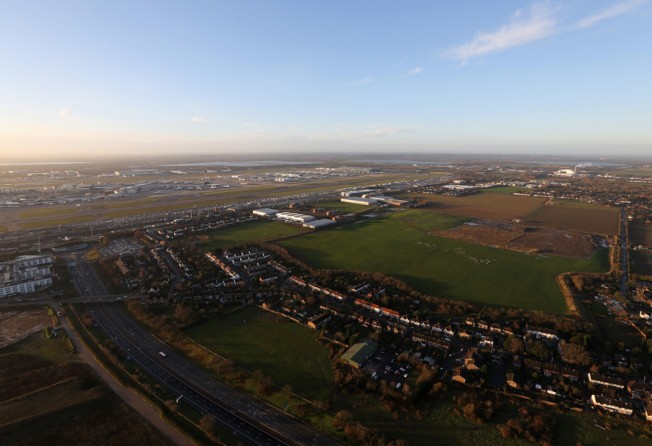Chinese join the rush for British country estates
After snapping up posh apartments in London, well-heeled foreign investors are now shelling out eye-watering amounts for country estates

Chinese investors are among the growing numbers of rich foreigners buying farms and country estates across Britain.
In addition to snapping up luxury townhouses in smarter parts of London such as Knightsbridge and Chelsea, estate agents are reporting a big increase in investors trying to buy swaths of farmland.
The influx has sent the price of farmland to a record high of £6,882 (HK$87,000) an acre, an 11 per cent rise on last year and a 210 per cent increase over the past decade.
Andrew Shirley, head of rural research at estate agents Knight Frank, said: "People from around the world who buy a townhouse in Chelsea look around for what else they could buy ... increasingly they're looking at country estates and farmland. There has been a significant increase in inquiries from overseas investors."
Knight Frank had sold to South Africans, Scandinavians and "a lot of Italians", he said. "We're even showing Chinese people around farmland."
Shirley said rich buyers were "not going to be sitting on the tractors themselves" but were buying farms for investment or as a "lifestyle estate".
Scandinavians had long been keen on grouse-shooting and salmon-fishing estates in Scotland, while Middle Eastern racing fans were buying up stud farms around Newmarket, Suffolk.
Evelyn Channing of Savills' rural office said sporting estates had been "at the top of Christmas wish lists" for international businessmen and women. Channing is selling a nine-bedroom castle set in 10,000 acres of deer-stalking woodland. She said the Cluny estate, which dates back to the 1600s and is on the market for £7.5 million, was very likely to be sold to a foreign buyer. Two-thirds of potential buyers had been from Scandinavia, particularly Denmark.
Channing said the asking price for country estates had rocketed because only four or five reached the market a year, but arable land was experiencing exceptionally strong demand.
Before the credit crunch a lot of investment funds were buying up farmland but now it was mostly rich individuals, Shirley said. "Investors are looking for good-sized blocks, ideally 1,000 acres of good arable land in East Anglia," he said. "People are willing to pay £8,000-£10,000 an acre for the best sites. And a lot changes hands for a lot more privately."
Ian Bailey, the head of rural research for Savills, said prices were rising because demand far outstripped supply.
Last year just 150,000 acres of farmland were put up for sale, compared with 300,000 a decade ago.
The agents said buyers were also attracted by the increasing array of money-making opportunities from land ownership, which now extended to rent from wind turbines and fracking, as well as the traditional farming activities.
Although landowners cannot collect mineral rights like in the US, they can charge for access for drilling. "Fracking could be a useful additional income, but you're not going to become a Texan oil magnate," Shirley said.
He said there was more potential in wind turbines, which could be "very lucrative". "There are a lot of people making lots of money from wind turbines."